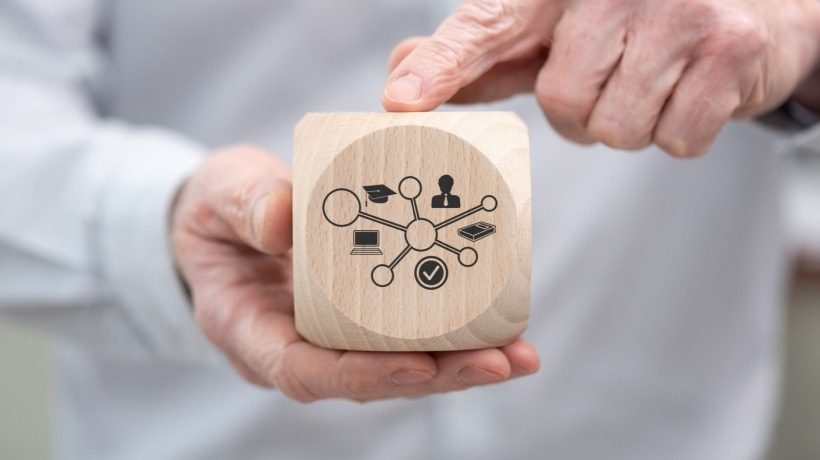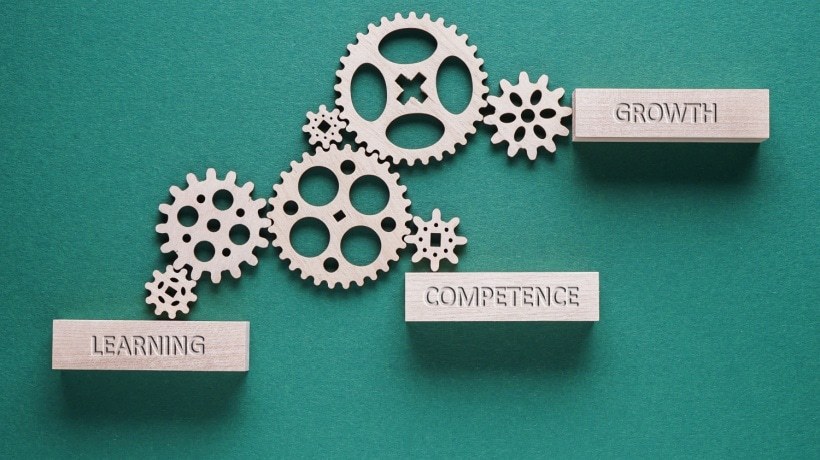Combining Adaptive Learning With Competency-Based Education (CBE)
Competency-based education is an educational model that focuses on mastery of skills and knowledge rather than time spent in a classroom. It's a paradigm shift from the traditional "seat time" approach to one where students progress based on their ability to demonstrate competencies.
Key Components Of Competency-Based Education
- Clear learning outcomes
Specific, measurable competencies that students must master. - Flexible pacing
Students advance upon mastery, not after a set time period. - Personalized learning
Instruction tailored to individual student needs and learning styles. - Multiple assessment methods
Various ways to demonstrate mastery, beyond traditional tests. - Immediate feedback
Continuous assessment and feedback to guide learning.
The Power Of Adaptive Learning
Adaptive learning is an educational method that uses computer algorithms to orchestrate the interaction with the learner and deliver customized resources and learning activities to address the unique needs of each learner. This technology-driven approach is revolutionizing how we think about personalized education.
Core Features Of Adaptive Learning Platforms
- Real-time data analysis
Continuous assessment of learner performance. - Dynamic content delivery
Adjusting materials based on learner progress and needs. - Personalized learning paths
Tailoring the educational journey for each student. - Intelligent feedback systems
Providing timely and relevant feedback to guide learning. - Predictive analytics
Anticipating learner needs and potential challenges.
The Synergy: How Adaptive Learning Supports Competency-Based Education
The integration of adaptive learning technology with competency-based education principles creates a powerful synergy that addresses many of the challenges in traditional education models. Here's how adaptive digital learning platforms align with and enhance CBE goals:
1. Mastery-Focused Progression
CBE Goal: Ensure students master competencies before moving forward.
Adaptive Learning Support:
- Continuously assesses student understanding.
- Provides additional resources and practice for struggling concepts.
- Allows quick advancement through mastered material.
2. Personalized Learning Experiences
CBE Goal: Tailor education to individual student needs and learning styles.
Adaptive Learning Support:
- Analyzes learning patterns to identify optimal teaching methods for each student.
- Adjusts content difficulty and presentation style in real time.
- Offers diverse learning resources (videos, texts, interactive simulations) based on student preferences.
3. Flexible Pacing
CBE Goal: Allow students to progress at their own speed.
Adaptive Learning Support:
- Enables self-paced learning through modular content delivery.
- Provides challenges for advanced learners while offering support for those who need more time.
- Tracks individual progress, allowing educators to intervene when necessary.
4. Immediate And Actionable Feedback
CBE Goal: Provide timely feedback to guide learning and improvement.
Adaptive Learning Support:
- Offers instant feedback on assessments and activities.
- Provides detailed explanations for incorrect answers.
- Suggests targeted resources for improvement based on performance data.
5. Multiple Forms Of Assessment
CBE Goal: Assess competencies through various methods beyond traditional testing.
Adaptive Learning Support:
- Incorporates diverse assessment types (quizzes, projects, simulations).
- Adapts assessment difficulty based on learner performance.
- Provides opportunities for practical application of skills in virtual environments.
6. Data-Driven Instruction
CBE Goal: Use data to inform and improve instructional strategies.
Adaptive Learning Support:
- Generates detailed analytics on student performance and engagement.
- Identifies trends and patterns in learning across individuals and groups.
- Provides insights to educators for curriculum refinement and intervention strategies.
Real-World Impact: Case Studies
Higher Education
A university implementing an adaptive learning platform for its CBE program saw a 22% increase in course completion rates and a 15% improvement in overall student satisfaction.
Corporate Training
A multinational corporation adopted an adaptive learning system for competency-based employee training, resulting in a 30% reduction in training time and a 25% increase in skill retention.
K-12 Education
A school district integrating adaptive learning with CBE reported an 18% improvement in standardized test scores and a significant reduction in achievement gaps among diverse student populations.
Challenges And Considerations
While the integration of adaptive learning and CBE offers tremendous potential, it's not without challenges:
- Technology infrastructure
Ensuring all students have access to the necessary devices and reliable internet. - Teacher training
Preparing educators to effectively use adaptive learning tools and interpret data. - Content development
Creating high-quality, diverse content to support adaptive learning systems. - Data privacy
Addressing concerns about the collection and use of student data. - Balancing technology and human touch
Ensuring that technology enhances rather than replaces valuable human interaction in education.
The Future Of Education
As adaptive learning platforms continue to evolve, their alignment with competency-based education principles will likely deepen. We can anticipate:
- More sophisticated AI-driven personalization.
- Enhanced integration with Virtual and Augmented Reality for immersive learning experiences.
- Improved predictive analytics to prevent learning gaps before they occur,
- Greater emphasis on soft skills and social-emotional learning within adaptive systems.
Conclusion
The convergence of competency-based education and adaptive learning represents a significant leap forward in educational methodology. By leveraging the power of technology to support individualized, mastery-focused learning, we're moving closer to an educational system that truly meets the needs of every learner. As these approaches continue to evolve and integrate, they promise to reshape the landscape of education, making it more effective, engaging, and equitable for all.










